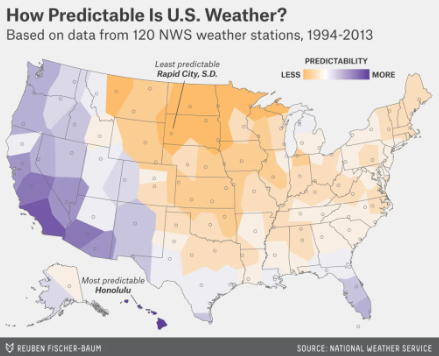Weather in Michigan is different from most states, as it’s more difficult to predict rain and snowfall amounts, but why is this? There are a lot of different factors that make forecasting for Michigan more challenging than other states. I talked with Meteorologist Brian Rakoczy about why Michigan’s weather is so hard to predict.
When asked about why Michigan, specifically Houghton, which in the UP, was hard to predict for, Rakoczy answered with, “Houghton is close to lake Superior. The Great Lakes can moderate temperatures and can lead to very intense rain or snow, which is known as Lake Effect. The Lakes take longer to change temperature, compared to the land. When you have very cold air from The North crossing over, the warmer waters in the lakes will evaporate, move across land and bring intense rain/snowfall.” Another reason he mentioned was how Michigan is located close to the 45th parallel.
“In America, you can see cold air coming from Canada and warm air from Mexico. In particular, you can get Low Pressure systems coming from the Rocky Mountains and Canada, which interact with the systems in the Great Plains.” Rakoczy said, “When those interact it creates something called a Gale, which people might know as a November Witch.”
He also mentioned that “Köppen climate classification classifies Michigan is a continental climate. We are considered a “Humid Continental Mild Summer, Wet All Year”” which means we have warmer summers compared to southern states and precipitation is all year
When asked about what impacts do El Niño and La Niña have on Michigan, Rakoczy answered with, “Michigan’s climate can be affected by El Niño, making it warmer and drier than average. La Niña affects Michigan’s weather as it brings cooler temperatures and wetter days.” According to the North Oceanic Atmospheric Administration(NOAA), we are under an El Nino advisory.
Rakoczy wants people to know that Meteorologists and other officials are always working to improve the forecast. and according to a study from Penn State and MIT, they claim today’s 5 day predictions are as accurate as 1-day predictions in 1980.







